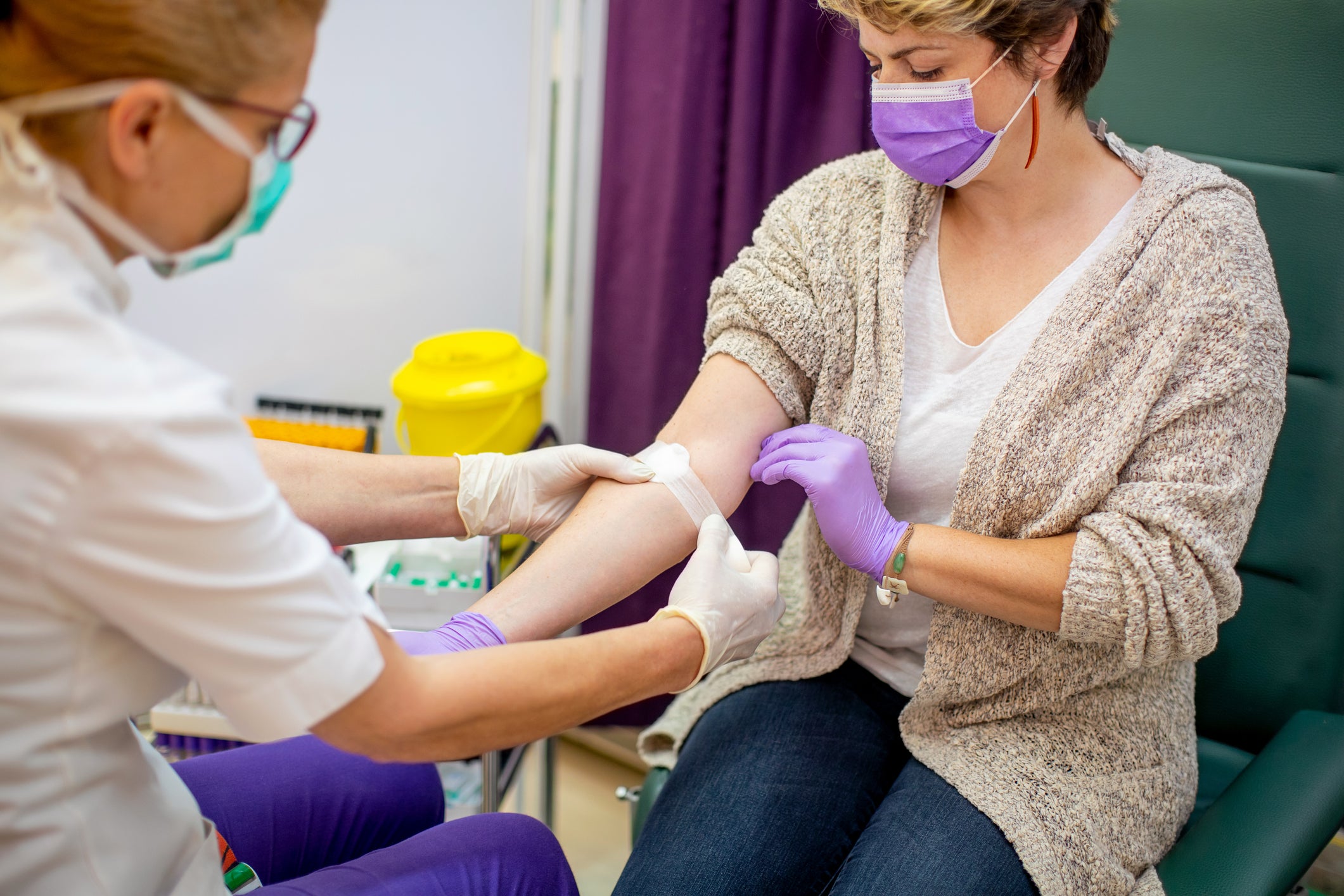From sharing DNA with a blood donor, to living off takeaways
We explore some of the curious questions that science can answer

I donate blood. The people getting the blood will get a dose of my DNA. Will they always have it? If not, for how long will they carry it?
They don’t get as much DNA as you might think. This is because only body cells contain DNA, and most of what’s in blood is actually fluid. Of the cells that make up the blood, there are red ones and white ones. Red blood cells don’t have any DNA because they lose it during development. The job of red blood cells is to carry oxygen, and they lose their DNA so they can accommodate more oxygen. White blood cells do contain DNA, but there are not that many white cells in the blood, unless a person is fighting off an infection. The National Blood Transfusion Service usually refuses donations from people who are fighting off infection.
So, having said that people who receive blood transfusions do not receive much DNA, what happens to the DNA that they do receive? Generally, the cells of the blood are replaced fairly quickly. All of the donated cells will have been replaced within several months following the transfusion, which means that all of the donated DNA will have been broken down and the ingredients recycled.
Why do your veins appear blue from the outside of your body?
There are three reasons why you your veins look blue. One is that skin and surface tissue can be quite translucent, although this depends to a certain extent on skin tone – it is more difficult to see veins through darker skin. The second reason is that the veins you can see are actually very close to the surface. You cannot see arteries, which carry oxygenated blood from the lungs, because they are buried deep inside tissue, while veins run along the surface of your tissues, often just under your skin. Your veins are most prominent on your inner wrists, the backs of your hands, your inner elbows, your neck and upper chest and your legs, especially your feet.
The reason that veins appear to be blue is because they carry blood that does not contain much oxygen. Veins carry blood back from the respiring body tissues to the heart and lungs. Because these tissues have exhausted much of the oxygen that was carried in the blood, the blood appears blue. Blood with high levels of oxygen in it is bright red, and is transported through the arteries.
The third reason has to do with the nature of the skin itself. Fair skin normally reflects the light that hits it. However, the longer red wavelength of light will penetrate further into the skin than the shorter blue wavelength before being reflected out, so the blue light is reflected back before it reaches the vein and this makes the vein appear blue.
Is it possible to live on nothing but sunlight, Chinese takeaways and water?
The answer to your question is most probably “yes”. The human body needs water and nutrients from food and the sun to survive. A Chinese takeaway gives us essential macro-nutrients such as carbohydrates from rice or noodles, and fats and proteins from meat and oil. It also provides micro-nutrients, such as vitamins A, D, E and K (found dissolved in fats) and vitamin C, as well as the B vitamins, which are soluble in water and found in many vegetables.
Food and water also provide essential minerals such as sodium and potassium. You’d have to vary your choice of takeaway now and then, because eating the same meat all the time would not provide all the essential amino acids (protein building blocks) that the body needs.
Eating processed white rice all the time would lead to a deficiency in vitamin B1 (needed for metabolism) and the disease beriberi, which causes muscles to malfunction, so brown rice or noodles would be needed for a change. Sunlight breaks down a source of vitamin D under the skin, which is helpful for using calcium to build bones and nails. Sources of calcium in Chinese food are not abundant, but if you had clams or oysters in your dish, you’d be fine. Of course, the body also needs air, or more specifically oxygen, but I’d assume you’d have that. So you could survive on sunlight, varied Chinese food and water – as indeed the Chinese do.
Join our commenting forum
Join thought-provoking conversations, follow other Independent readers and see their replies
Comments
Bookmark popover
Removed from bookmarks